EAGAN, Minn. — What began as an exploration by Maya Washington of her father Gene Washington's football career has become an intergenerational bridge spanning more than 50 years.
**Through the Banks of the Red Cedar** is a documentary film created by Maya that chronicles Gene's journey from growing up in the Segregated South to being one of the early stars of integrated major college football at Michigan State to becoming a first-round selection of the Vikings in 1967.
The film was screened on Wednesday at Twin Cities Orthopedics Performance Center for more than 100 area high school students who have or are participating in the 306: African-American History course that is provided through a partnership with EVERFI and the Vikings. It also was screened for Vikings Legends and staff members Wednesday afternoon.
"It's just such a blessing," Maya said. "I've been calling it sort of a millennial bridge, and now, with the high school group, it's a Gen Z bridge, because if we're not telling these intergenerational stories, it's really hard for young people to understand sort of the challenges we have when it comes to diversity and inclusion and equal opportunity in the U.S. if you don't have an understanding of how things were.
"I'm grateful that through our film, we're sort of able to make what happened 50 years ago relevant to a modern audience," she continued. "Hopefully students see themselves as young athletes or as young people who might have parents or grandparents who have experienced similar things to my dad, to sort of inspire them to want to learn more about history and feel confident as scholars of the past to use what my dad's generation did as sort of an example of how we can work together to sort of make society better now."
A connection with Bubba Smith helped Washington make the trek from La Porte, Texas, near Houston to Michigan State.
The men were part of a large group of African-American players recruited by former Spartans Head Coach Duffy Daugherty.
Smith wanted to play at Texas, but black players were not allowed on the Longhorns team at that time. Once he made the decision to head north, he put in a word for Washington, who was granted an opportunity "sight unseen."
Eye-opening moments ensued.
"Duffy trusted that recommendation," Washington explained. "Leaving Texas, in terms of what we faced from growing up in that situation, when I got to Michigan State, it's like you're in one particular situation and dropped in a completely different situation and have two white roommates. I meet Duffy Daugherty, and the first thing he tells me is that I want you to call me Duffy and all of the assistant coaches by their first name.
"So I'm coming from the Segregated South, and everything is "Mister," so it took me a while to get used to that," he continued.
A screening of the documentary film "Through the Banks of the Red Cedar" at TCO Performance Center.


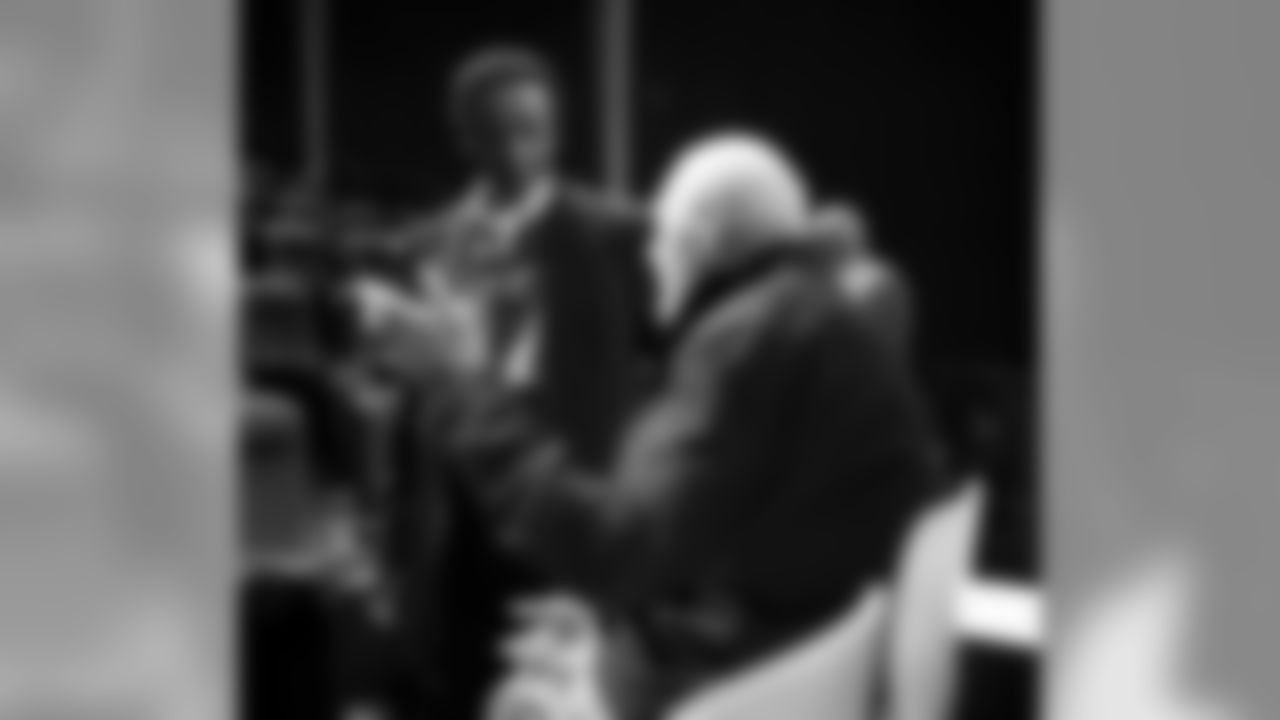
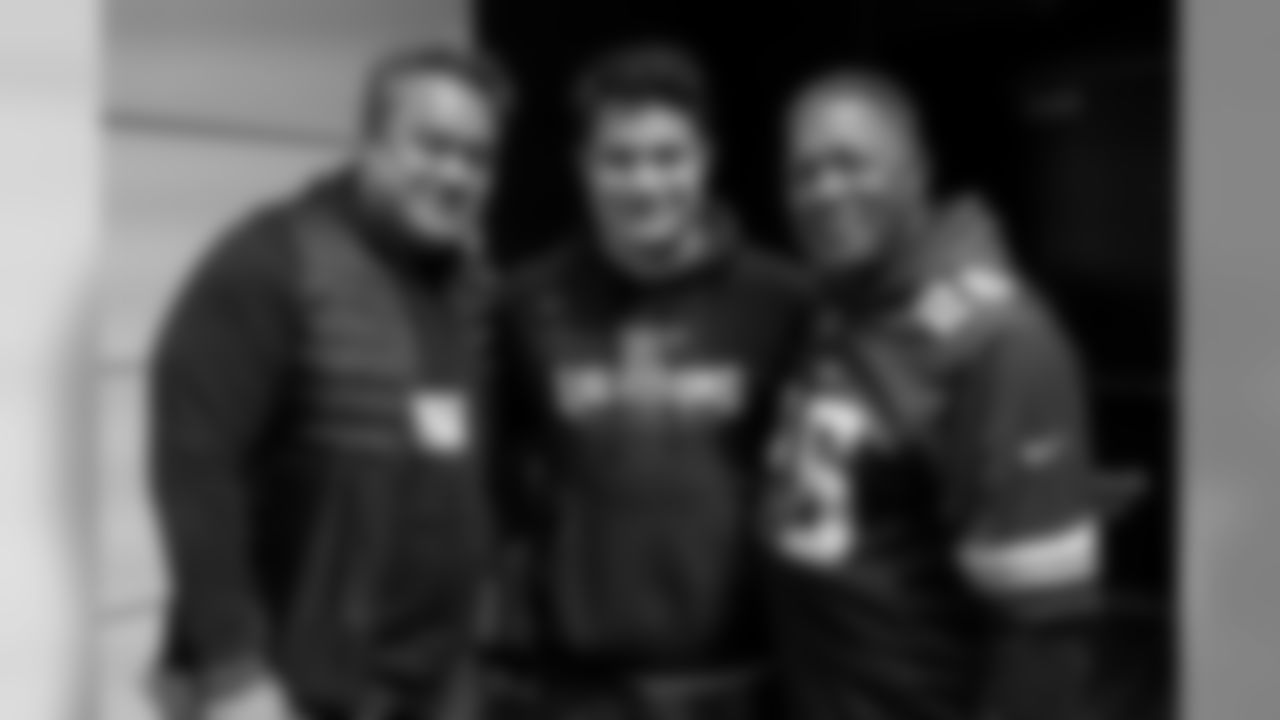



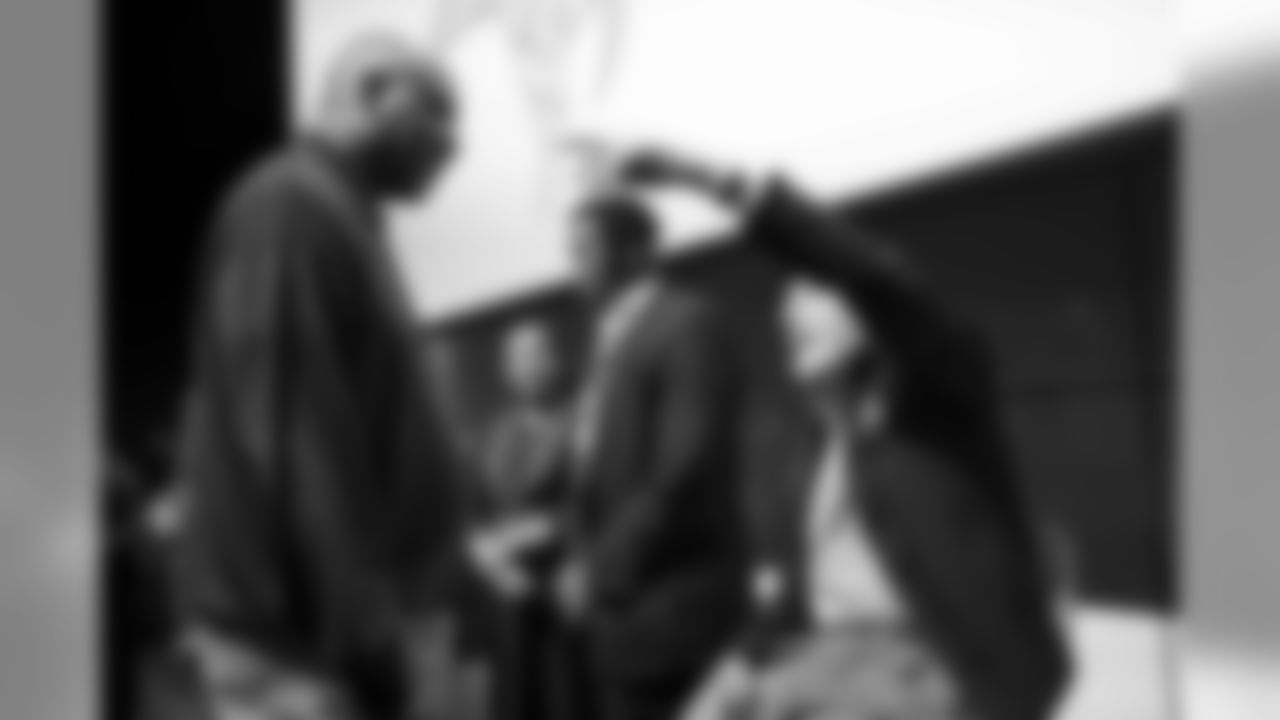

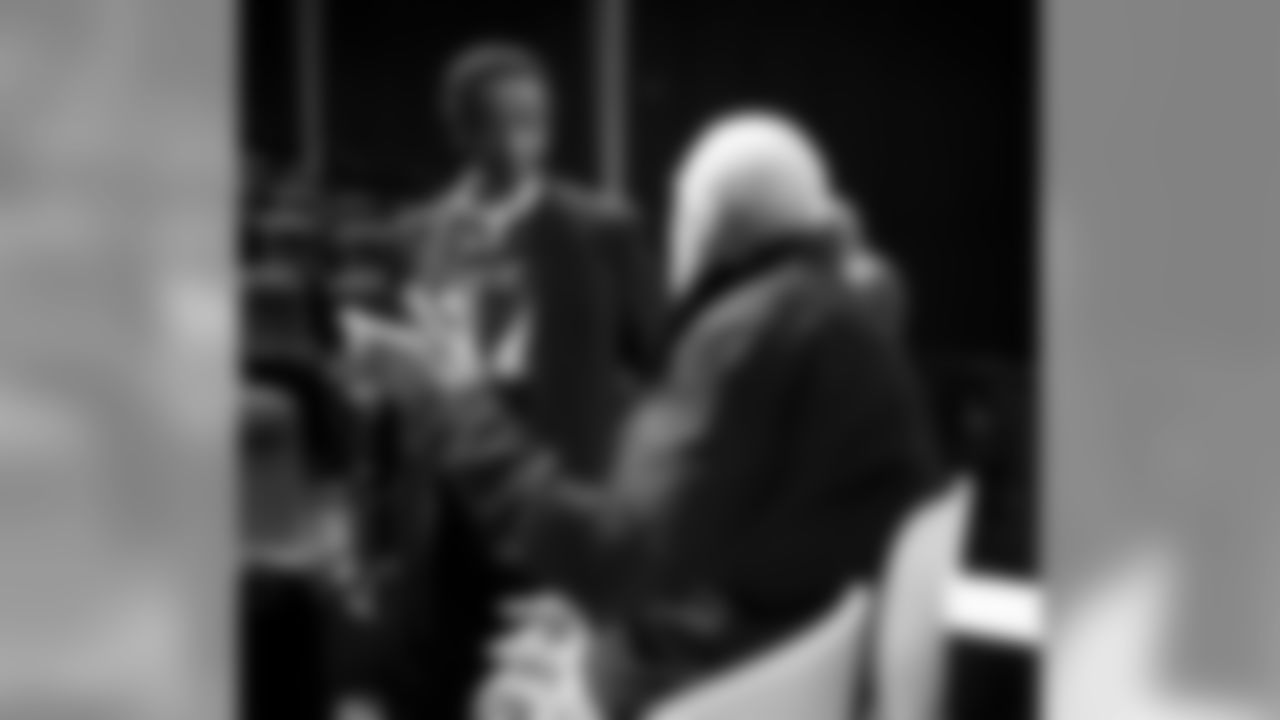

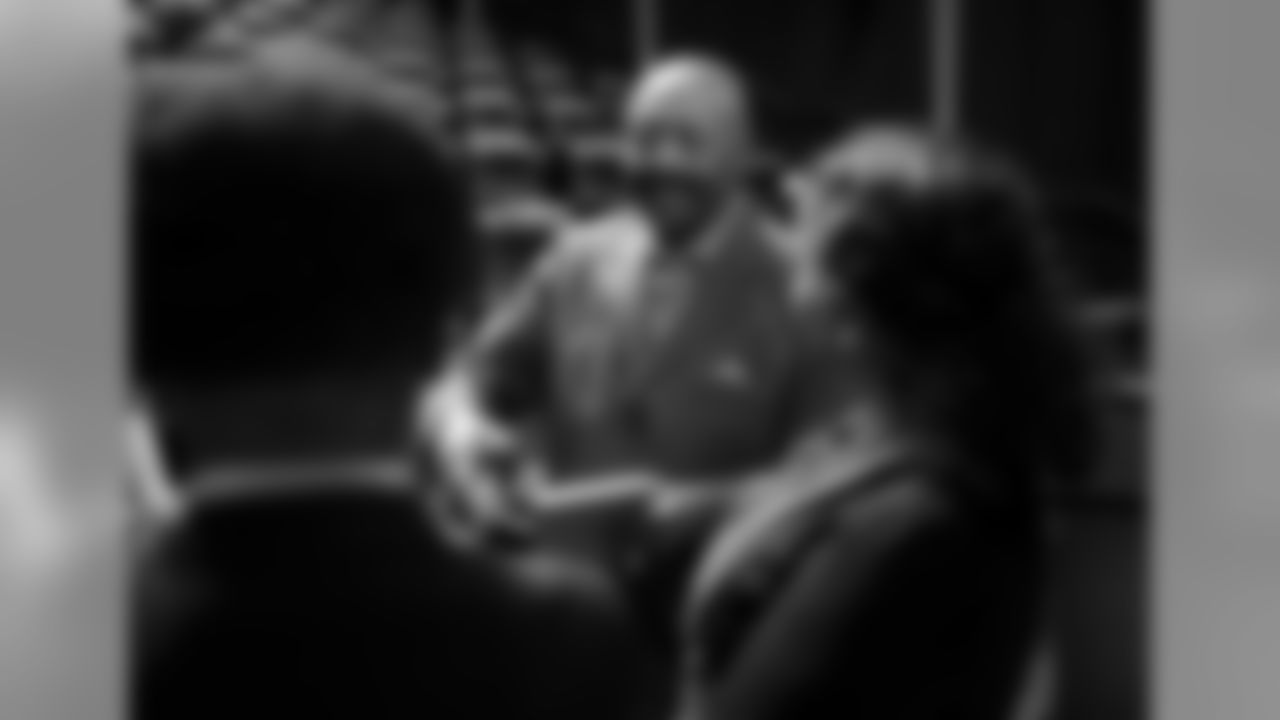














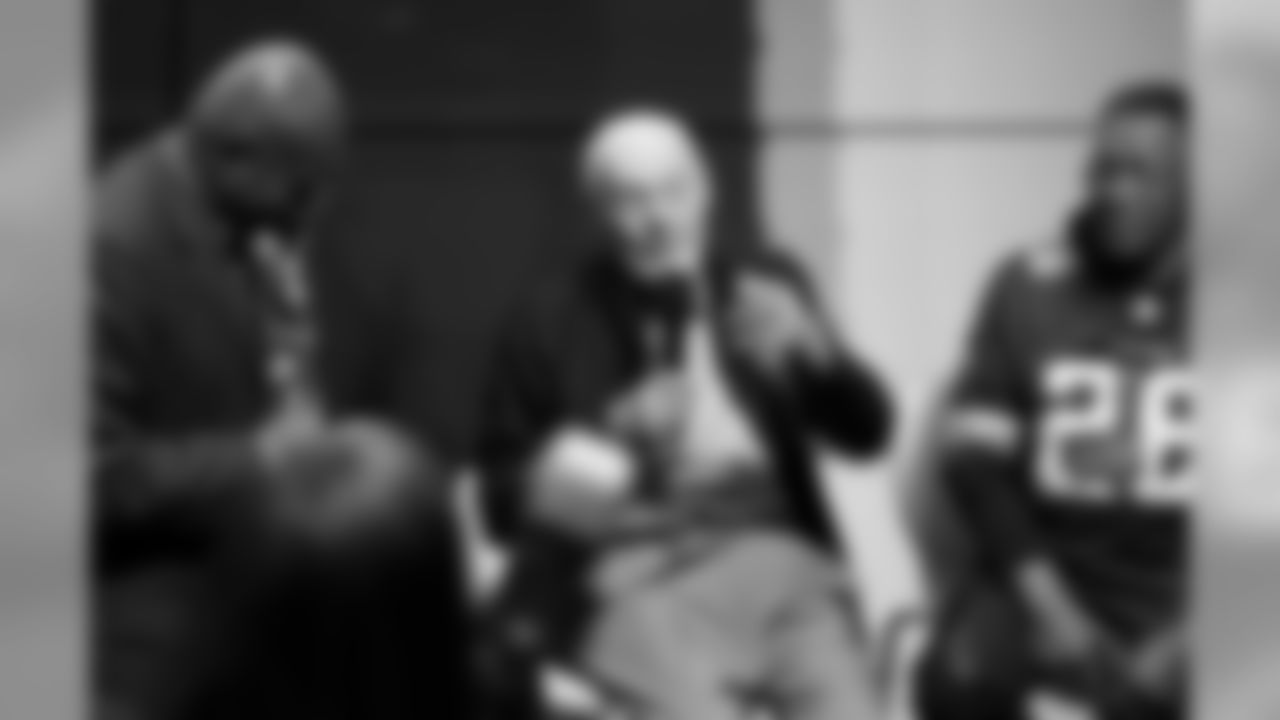




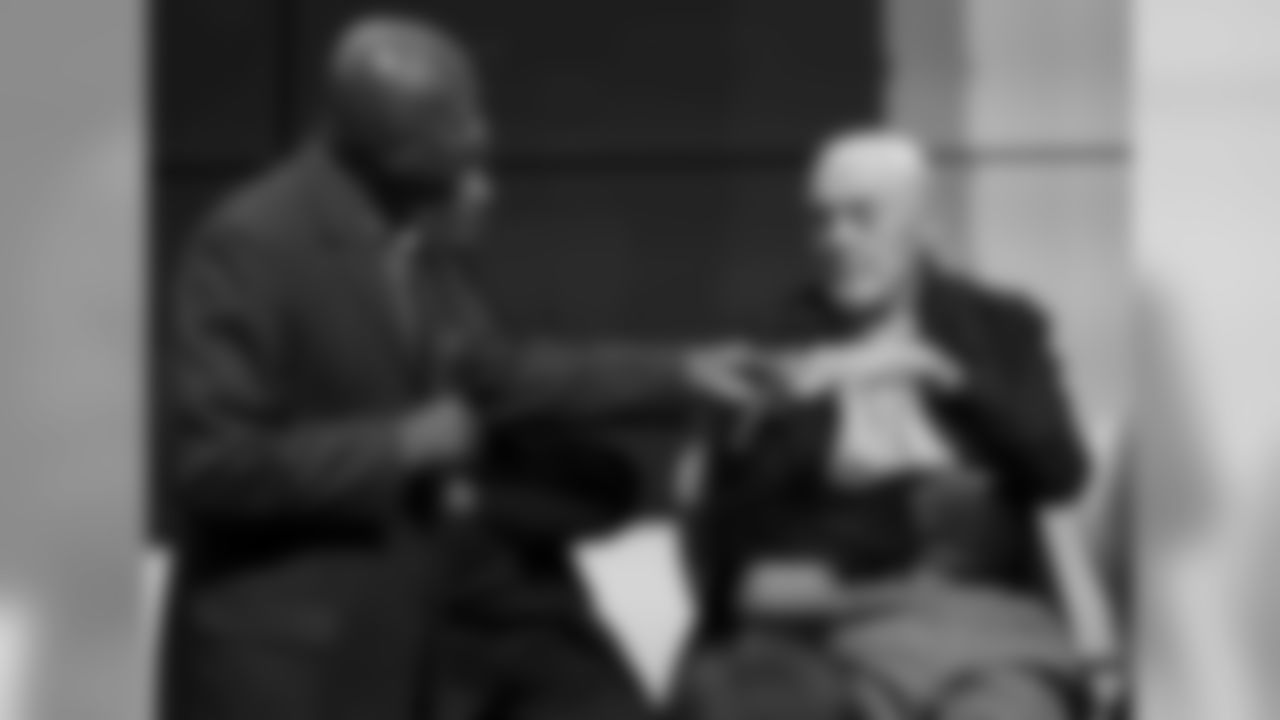


















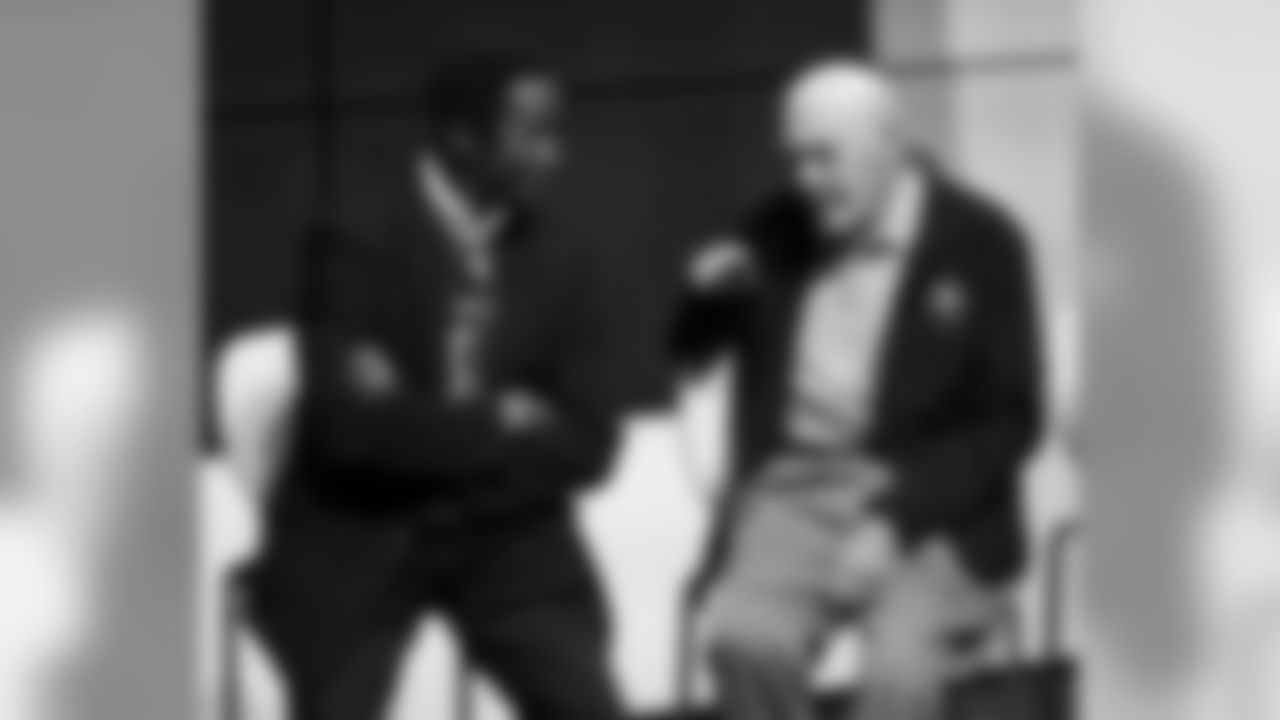







Washington appreciated the investments that his teachers made in him when he attended schools in Texas and how they prepared him to do well in college. He valued the emphasis on education at Michigan State and how it helped him succeed after football.
Gene was joined by his former Spartans and Vikings teammate, Clinton Jones, who flew in from the Los Angeles area to participate in the event.
Jones recalled asking Daugherty for nothing more than an opportunity to play. He parlayed that to becoming the second overall pick of the 1967 NFL Draft, a spot behind Smith and six ahead of the Vikings tabbing Washington.
"The adversity and all of that stuff, the only thing that mattered to me was winning, and I wanted to be a part of it and contribute as much as I could," Jones said. "It's hard to explain what we had. We had something that other people wanted [at Michigan State and with the Vikings].
"Even though [we lost] the Super Bowls and stuff like that, we had something very deep, a human element that's kind of hard to explain and we still have it today," Jones added. "It grew over the years. It wasn't just a passing phenomenon. Our legacy is contributing to the illness that exists today. We are showing actual proof of how human beings should do. This culture of football shows how we can take diversity and unite, appreciate it and change poison into medicine."
The 1967 NFL Draft was the first one after Hall of Fame Head Coach Bud Grant's hire. He joined the first two picks selected in his tenure for a question-and-answer session hosted by former punter Greg Coleman that followed the screening for staff and Vikings Legends.
Grant passed along the following recollection:
"It was a time of transition, really. I think it helped a little bit, because of my background. I was raised in northern Wisconsin. My father was born on an Indian reservation, and we had a lot of Indian friends. I never thought about black, white, red. That really didn't enter my mind. In fact, I was relating [Wednesday] to a conversation when we drafted Gene, Clinton and Alan [Page], we had three first-round picks that year. The draft came up and these guys were all on the board. We had Clint and Gene and now another pick, and Alan Page was up. It was expressed at that time by people in the room, 'Well, that would be three black players in the first round. Nobody's ever done that before.' I said, 'Well, what's the problem?' They said, 'We're breaking new ground here. I wasn't hired here to get involved in that kind of thing. I said, 'Either we draft Alan Page, or I'll take a walk.' That was the end of the conversation.
Washington, who still makes his home in the Twin Cities, said he has enjoyed seeing the diversity increases that have been made by the Vikings.
"In looking at the Vikings now and how it used to be when we're all playing together, we hear the word diversity a lot now," Gene said. "Back when we were playing, I don't think we heard it at all. I am so impressed when I think about the Vikings administrative staff, the coaches and the whole organization. I get the sense after being up here more than 50 years that they have really taken a step from a diversity standpoint. … In this day and time, we hear the word diversity and the Vikings are in sync with all of that.
"Nobody in my immediate family had the chance to go on to college. I had that opportunity through sports and scholarships, and I am so, so proud that my three daughters have all gone on to college and done very well. That means the world, and [my wife] Claudith has her graduate degree, as well. That means more to me as we look back on where I came from, to recognize that my family had the opportunity, from an education standpoint, and as a father, I can look back and I have grandkids that will have the same opportunity to advance themselves through education."
The importance of education is a message that Washington continues to pass along to younger generations.
Generally private, he can see that participating in the film, which has been featured at multiple festivals, can reinforce that message.
It's also brought him closer to Maya by giving them what she described as a "common language" that they didn't have before the film.
"If you just distill it to I'm an artist, he's an athlete and other things, but in terms of who we are at heart, he has an athlete's heart, and I have an artist's heart," she said. "Through this process, because it was so difficult to raise funds and film all over the country and navigate multiple major athletic programs, he saw me working really hard and grew an appreciation for my art, and I uncovered how hard he and his teammates had worked and developed a better appreciation for the game of football, for track, for his experiences as an athlete, so now we have this common language where we are communicating more.
"We're talking on the phone a few times a week and it's more than just about the weather. Previously, it was like, 'How are you?' 'I'm good.' 'Well, how's the weather,' if we're in a different city, but it's even worse when we're in the same city," Maya quipped. " 'Well, over here in Plymouth, it's this way,' and 'In Edina, it's that way,' so I think we just have this connection that was always there but just a freedom and space to sort of express our appreciation for each other."
Twitter: @OfTheRedCedar
Website: throughthebanksoftheredcedar.com














